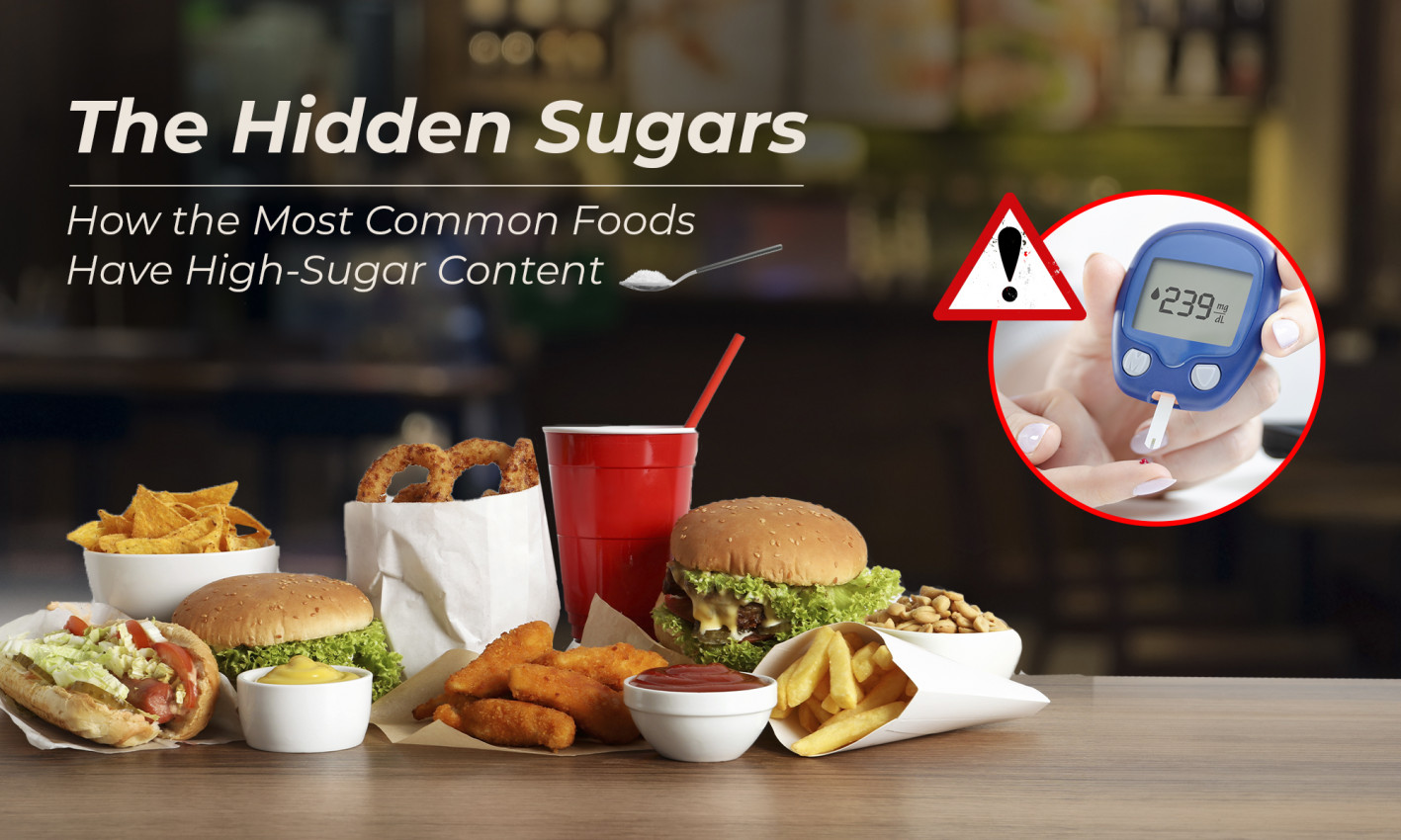
Sugar is generally considered the main culprit behind weight gain, type 2 diabetes, heart disease, depression, blood sugar, and even some type of cancer.
Health Enthusiasts, Dieticians, Nutritionists, and the overall health fraternity have been emphasizing cutting down on added sugars, that are highly processed, like white sugar, brown sugar, or corn syrup.
A large part of this negative impact is the weight gain, perpetrated by insulin resistance, a condition that exploits the body’s ability to regulate blood sugar levels, leading to type 2 diabetes.
While significantly reducing or cutting out added sugars is a smart move for everyone, regardless of age and health status, it's important to note that not all sugars are created equal. Natural sugars in fruits, dairy products, and vegetables often contain essential nutrients like fiber, vitamins, and minerals.
What often goes unnoticed are the hidden sugars lurking in our everyday foods!
These sneaky sugars, often disguised under clever names, can significantly impact our health and contribute to various ailments.
This article will tell you about the hidden sugars in our favorite foods and how to be aware of their impacts on our diet.
Knowing our Sugars:
The World Health Organization (WHO) and the Food and Agriculture Organization of the United Nations (FAO) have standardized the classification of sugars for our food labels. It provides a plausible framework for assessing the potential health benefits of different sugars. ____________________________________________________________________________________________________________________________________
| Sugars: Subgroups | Principal Components |
|---|---|
| Monosaccharides | Glucose, Fructose, Galactose |
| Disaccharides | Sucrose, Lactose, Maltose, Trehalose |
| Free Sugars | All sugars added to foods by the manufacturer and sugars naturally present in honey, syrups, and fruit juices. |
India is the largest consumer of sugar in the world. It explains why India is the “Diabetes Central” of the world.
The American Heart Association had recommended that -
Women should consume at most 6 teaspoons of Sugar (about 25 grams)
Men should consume at most 9 teaspoons of Sugar (about 37 grams)
Research has also shown that the intake of “Traditional Sugars” has declined in recent years and the intake of “Added Sugars” from sweet beverages like Cold drinks, energy drinks, and vitamin drinks.
Let’s learn more about the “Free Sugars” or “Added Sugars” in our most common, Favorite foods.
Sugars in the most common Foods:

Processed foods are a convenient and often tasty option, but they can be a significant source of hidden sugars.
Chemically processed foods, often referred to as ultra-processed foods, are typically high in sugar, artificial ingredients, refined carbohydrates, and trans fats. This unhealthy combination makes them a significant contributor to global health issues like obesity.
Manufacturers often add sugars to enhance flavor, texture, and shelf life. Here are some common processed foods that might contain hidden sugars.
Research has indicated that consuming 10% of ultra-processed foods increases the risk of cardiovascular diseases by 10%.
Breakfast cereals are everyone’s breakfast best friend.
Healthy cereals like Oats, Granola, and Muesli are thought of to be highly rich in vitamins, minerals, and dietary fiber and can be a great start to your morning.
Many popular breakfast cereals, despite being marketed as healthy, contain surprisingly high amounts of added sugar, often listed as the second or third ingredient.
This can lead to rapid spikes in blood sugar levels.
Additionally, the processing involved in creating these cereals can strip them of their natural fiber content, which plays a crucial role in maintaining steady blood sugar levels and promoting satiety.
Therefore, it is important to choose your breakfast cereals from natural and organic sources, to help maintain your morning health. Refresh offers certified organic and natural High-fiber breakfast cereals from the most sustainable brands, to help you start a natural living.
Flavored processed yogurts, marketed as “Healthy” have high amounts of “Added Sugars” added for taste and color.
Flavored yogurts also have calories, equal to Ice-creams! Researchers have found surprising amounts of, 16.4 g per 100 gms of sugars in yogurt and yogurt-based desserts.
Consuming plain, Greek yogurt, can help promote bone health and aid digestion. These yogurts contain probiotics, live bacteria that can help keep your intestines healthy.
While Yogurt products are processed through heat, killing thier live bacteria, reducing the health benefits, further.

Summing up::
By understanding the hidden sources of sugar in our daily diet, we can make informed choices and reduce our sugar intake.
By opting for whole, unprocessed foods, reading food labels carefully, and limiting our consumption of processed foods, we can protect our health and well-being.
Remember, a diet rich in fruits, vegetables, whole grains, and lean proteins is key to a healthy and Natural lifestyle.
Top 10 Health Goals for 2026: Stay Healthy, Happy & Strong This Year
January 1st, 2026